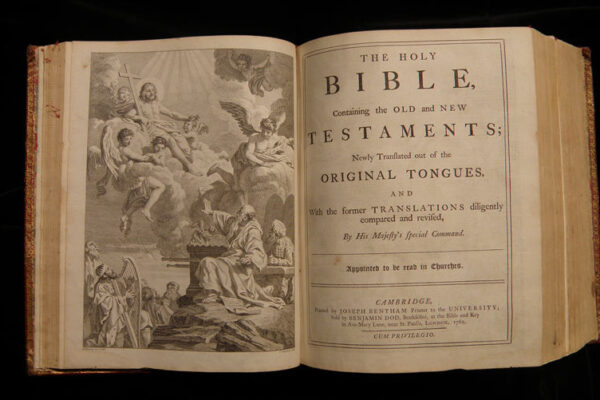The American Civil Liberties Union of Kentucky (ACLU-KY) has notified the Kentucky Department of Education (KDE) of serious fundamental and constitutional issues with “Bible Literacy” courses in some of Kentucky’s Public Schools after an Open Records Act investigation.
The ACLU-KY sent requests to all of Kentucky’s 173 school districts seeking policies and curriculum for “Bible Literacy” courses. While most districts are not offering these courses, the ACLU-KY found many of the courses that are being offered do not fall within constitutional strictures, which require any use of religious text in the classroom to be secular, objective, nondevotional, and must not promote any specific religious view.
The investigation uncovered public school teachers using the Bible to impart religious life lessons (Barren, McCracken, and Letcher Counties), use of online Sunday School lessons and worksheets for course source material and assignments (Letcher and Wayne Counties), and rote memorization of Biblical text (McCracken County) -- practices which fall far short of academic and objective study of the Bible and its historical context or literary value.
“In the wake of the passage of the ‘Bible Literacy’ bill last year, the KDE has been charged with implementing guidance and standards for ‘Bible Literacy’ classes in the Commonwealth,” said ACLU-KY Attorney Heather Gatnarek. “We hope our investigative findings demonstrate the need for clear, concise, and controlled guidance for teachers in addition to a plan for monitoring these courses so students’ and parents’ constitutional rights are not violated.”
Commenting on the investigation, ACLU-KY Executive Director Michael Aldridge said, “The ACLU of Kentucky continues to believe that ‘Bible Literacy’ courses, some of which have been in place before the bill’s passage last year, have no place in our Commonwealth’s public schools. We tried to warn legislators about the difficulty of implementing a constitutionally sound course focused on one religious text. Our investigation now vividly illustrates the myriad of problems that can arise in our classrooms when they operating without proper guidance and training. Now, we look to the KDE to promulgate academic standards in this arena that can pass constitutional muster.”
In the letter to the KDE, the ACLU-KY extends an offer to be a resource as standards, guidance, and curriculum suggestions are developed. Click below to read the letter and see some of the materials we gathered.

